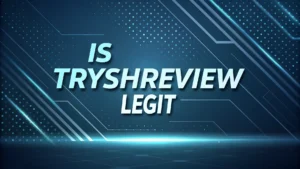In today’s digital age, financial scams have evolved to become more sophisticated and persuasive than ever before. Among these schemes, “dumb money scams” stand out as particularly deceptive operations targeting everyday people looking for financial opportunities.
These scams operate by manipulating emotions, creating false promises, and exploiting the natural human desire for financial security. Whether it’s a supposed “30-second phone ritual” promising thousands in passive income or misleading investment opportunities claiming to beat Wall Street, these scams share common patterns designed to separate you from your hard-earned money.
In this comprehensive guide, we’ll expose the inner workings of dumb money scams, share real-world examples, and provide you with practical strategies to stay one step ahead of scammers.
Key Takeaways: What You Need to Know About Dumb Money Scams
Before diving deeper, here are the essential points you should understand about dumb money scams:
- Dumb money originally refers to retail investors (everyday people investing in markets) as opposed to “smart money” (institutional investors), but scammers have co-opted this term for their schemes
- The most common dumb money scams today include the “30-second phone ritual” schemes promising passive income, fake investment systems, and phony trading platforms
- These scams typically make unrealistic promises of earning thousands of dollars with minimal effort, no experience, and in very little time
- Emotional manipulation is a core tactic, using relatable stories of struggling people suddenly finding financial freedom
- Fake urgency is created through countdown timers and claims that “this offer will disappear soon” to prevent you from researching
- No legitimate business model exists behind these offers – just recycled, basic information you could find for free
- Anonymous creators hiding behind fake personas like “Matt Scott” avoid accountability
- The payment structure usually involves a seemingly low initial fee ($47-$97) but often leads to upsells and additional costs
- Customer support is typically non-existent, making refunds nearly impossible despite bold guarantees
- Digistore24 and similar payment processors are commonly used, but they only process payments and don’t verify product legitimacy
- The psychological targeting focuses on vulnerable populations including seniors, unemployed individuals, and those facing financial struggles
- Recovery scams often follow initial scams, with the same or different scammers offering to help you get your money back (for a fee)
Understanding the Term “Dumb Money” and How Scammers Exploit It
The term “dumb money” has legitimate origins in the financial world, but scammers have twisted its meaning to serve their deceptive purposes. Let’s clarify the real meaning before exposing how it’s been weaponized against everyday people.
In financial markets, “dumb money” is a pejorative term used by Wall Street professionals to describe retail investors – everyday people investing their own money in stocks and other assets. This condescending label implies that ordinary investors make emotional, uninformed decisions while institutional investors (“smart money”) make calculated, data-driven choices.
This division between “smart” and “dumb” money became widely known during the 2021 GameStop short squeeze, where retail investors banded together to drive up the price of GameStop stock, causing massive losses for hedge funds that had bet against the company. This event, later portrayed in the movie “Dumb Money,” showed how regular investors could sometimes outmaneuver professional traders.
Scammers have seized on this narrative by creating schemes that promise to transform “dumb money” into “smart money” through supposed secret systems and insider techniques. They exploit people’s desire to beat Wall Street at its own game by offering fake shortcuts to wealth.
These scams manipulate the legitimate frustration many feel about economic inequality and the perception that financial markets favor the wealthy. By positioning their fraudulent products as ways to “level the playing field,” they tap into powerful emotions of resentment and hope.
The most insidious aspect of these schemes is how they flip the script. While they claim to help you escape being “dumb money,” they’re actually counting on your emotional decision-making – the very definition of what Wall Street considers “dumb money” behavior – to make you purchase their worthless products.
The Anatomy of the “30-Second Phone Ritual” Scam
One of the most prevalent dumb money scams circulating today is the so-called “30-second phone ritual” scheme. This scam follows a predictable pattern designed to capture attention, build false credibility, and create emotional urgency.
The scam typically begins with social media advertisements showing dramatic success stories. You might see someone with a cracked phone screen suddenly receiving multiple payment notifications, or an elderly person discovering a “life-changing secret.” These ads are strategically crafted to trigger curiosity and tap into financial anxiety.
Clicking the ad leads to a landing page with fake verification processes that serve no security purpose but create a false sense of legitimacy. Then comes the cornerstone of the scam: a lengthy, emotionally manipulative video that never actually explains the system. Instead, it focuses on vague promises and heartfelt testimonials from supposed users.
The narrators often mention trendy technology like ChatGPT, blockchain, or AI to make the system sound cutting-edge. They claim their system leverages these technologies to generate passive income with minimal effort. Yet they never explain the specific mechanism that supposedly makes this money.
A key red flag is the fake scarcity tactics employed. Countdown timers, limited spots warnings, and claims that “big companies are trying to shut this down” all pressure you to make an impulsive decision. This manufactured urgency is designed to bypass your critical thinking faculties.
After payment (typically around $67), victims receive access to a members’ area filled with generic content – basic PDFs about affiliate marketing, social media techniques, or other publicly available information. There’s no proprietary system, no revolutionary technology, and certainly no magical “30-second ritual.”
When disappointed customers try to get refunds, they discover that customer support is non-existent or unresponsive. Despite bold “60-day money-back guarantees,” many report that their refund requests go completely ignored.
The creators behind these scams often operate under fake identities like “Matt Scott” – personas with no verifiable online presence outside the scam ecosystem. This anonymity allows them to disappear and resurface with new scams under different names.
Real-World Stories: Victims of Dumb Money Scams
The devastating impact of dumb money scams becomes clear through the stories of real victims who have lost money, time, and trust. Their experiences reveal the human cost of these deceptive operations.
Sarah, a 68-year-old retired teacher, was drawn to a “dumb money system” advertisement that promised reliable income to supplement her modest pension. The ad featured someone her age making consistent daily earnings with just a few minutes of work. After paying the initial $67 fee, she discovered the system was merely basic information about posting affiliate links. When she tried to request a refund, her emails went unanswered. Sarah lost not only her investment but also precious time she spent trying to make the system work.
James, an unemployed factory worker, saw the dumb money system as a potential lifeline after being laid off. The promise of making “$500 per day using just your phone” seemed like the perfect solution while he searched for new employment. He invested his last $97 in the program, only to find recycled content about general online business ideas. The experience left him more financially strained than before and damaged his trust in legitimate online opportunities.
Lisa, a college student with mounting debt, fell victim to a variant of the scam that specifically targeted young adults with student loans. The system promised a way to pay off debt quickly through a “secret phone method.” After purchasing, she found herself pressured to buy additional upsells, each promising to unlock the “real secret” to success. Before realizing it was a scam, she had spent over $300 on worthless information products. Her story highlights how these scams often use initial low-cost entry points as a gateway to more expensive purchases.
These stories share common elements: vulnerable targets, emotionally resonant marketing, broken promises, and non-existent customer support. They remind us that behind the statistics of fraud are real people whose financial security and trust have been violated.
The Psychology Behind Dumb Money Scams
Understanding the psychological tactics employed by dumb money scammers provides valuable insight into how seemingly obvious scams continue to find victims. These operations are sophisticated in their psychological manipulation, even when their products are not.
At the core of these scams is the exploitation of what psychologists call cognitive biases – mental shortcuts that can lead to irrational decision-making. The optimism bias makes us believe we’re more likely to succeed where others have failed. The authority bias causes us to trust people who position themselves as experts. The scarcity bias makes us value things that seem limited or time-sensitive.
Scammers deliberately target people during vulnerable moments in their lives. Financial stress, job loss, retirement uncertainty, or mounting debt creates emotional states where critical thinking is impaired. When someone is worried about paying next month’s bills, the promise of quick money becomes more appealing and reasonable-sounding than it would otherwise.
These schemes also exploit the isolation many people feel about financial matters. Unlike other life challenges where we might seek advice from friends or family, financial struggles often come with shame or embarrassment. This isolation makes victims less likely to discuss potential opportunities with others who might spot the red flags.
Another powerful psychological tool in the scammer’s arsenal is the sunk cost fallacy. Once someone has invested money in a system, they become more likely to continue investing, hoping to recoup their initial investment. This explains why many victims purchase upsells or spend additional time on these systems even after experiencing initial disappointment.
Perhaps most insidiously, these scams leverage the genuine narrative of economic inequality that many people feel acutely. The idea that Wall Street insiders have rigged the system creates a natural desire for shortcuts or insider secrets. Scammers position their products as ways to level an unfair playing field, tapping into deep-seated frustrations about economic opportunity.
How to Spot and Avoid Dumb Money Scams
Protecting yourself from dumb money scams requires vigilance and awareness of common warning signs. By developing a critical eye for these red flags, you can save yourself from financial and emotional hardship.
The first and most reliable indicator is the promise of unrealistic returns with minimal effort. Any system claiming you can make thousands of dollars per month with just minutes of work each day is almost certainly fraudulent. Legitimate income opportunities require real skill, time investment, and effort.
Be extremely wary of marketing that relies heavily on emotion rather than specifics. Ads featuring dramatic life transformations, emotionally charged music, and testimonials focused on feelings rather than concrete facts are designed to bypass your critical thinking. Legitimate opportunities can explain exactly how they work without relying on emotional manipulation.
Lack of transparency about the business model is another major warning sign. If after watching a long presentation you still don’t understand exactly how the system generates money, that’s intentional obscurity. Legitimate businesses can clearly explain their value proposition and revenue model.
Fake urgency tactics should immediately raise suspicion. Countdown timers, limited spots claims, and warnings that “this video will be taken down soon” are manipulation techniques, not genuine limitations. Legitimate opportunities don’t need to rush your decision-making.
Research the credibility of the person or company behind the offer. Can you find information about them outside their own marketing materials? Do they have verifiable credentials or experience? Anonymous creators or those using stock photos and generic names are often hiding their true identities.
Check for independent reviews from credible sources, not just testimonials on the product’s own site. Look for detailed reviews that discuss specific aspects of the product, not just vague praise. Be aware that some scams create fake review sites to appear legitimate.
Finally, trust your intuition. If something feels too good to be true or seems suspiciously vague, it probably is. Legitimate opportunities can withstand scrutiny and questioning. If you feel pressured not to think too hard about how something works, that’s a clear warning sign.
The Technology Behind Dumb Money Scams
Modern dumb money scams employ various technological tools to appear legitimate, scale their operations, and evade detection. Understanding these technical aspects can help you identify sophisticated scams.
Many scams leverage targeted advertising platforms like Facebook, Instagram, TikTok, and YouTube to reach vulnerable audiences. Their sophisticated ad targeting uses data analytics to identify and focus on demographics most likely to respond – often seniors, the unemployed, or those researching financial solutions.
The landing pages for these scams frequently employ tracking pixels and cookies that follow potential victims across the internet, allowing for persistent remarketing. This creates the illusion that “everyone is talking about” the opportunity when in reality, you’re seeing repeated ads based on your browsing history.
Fake verification systems create a false sense of security. These often include CAPTCHA-like screens that don’t actually verify anything but make the site appear more legitimate and security-conscious.
Some more advanced scams create elaborate fake dashboards showing supposed earnings or activity that isn’t real. These interfaces may display randomized numbers that increase over time, creating the illusion of real-time profits being generated.
To avoid detection and legal consequences, many scammers use domain privacy services and regularly change website addresses. The same scam may operate under different names and URLs, making it harder for authorities to track and for potential victims to find negative reviews.
Payment processors like Digistore24 are commonly used because they provide arm’s-length transaction services without thoroughly vetting the products being sold. This creates a buffer between the scammer and financial systems that might otherwise flag suspicious activity.
Some operations use geo-blocking technology to prevent access from IP addresses associated with law enforcement or consumer protection agencies. This selective availability helps them avoid scrutiny from regulatory bodies.
Most concerning is how these scams misrepresent legitimate technologies like AI, blockchain, or automation to seem cutting-edge. They use technical jargon incorrectly but convincingly enough to impress those unfamiliar with the technology, creating a veneer of technological sophistication.
Legal Protections and Recourse for Victims
When someone falls victim to a dumb money scam, they often feel powerless. However, there are legal protections and potential avenues for recovery that victims should know about.
In the United States, the Federal Trade Commission (FTC) is the primary agency responsible for protecting consumers from fraudulent business practices. The FTC can take legal action against companies making false or misleading claims, which includes most dumb money scams. Reporting scams to the FTC’s Complaint Assistant (reportfraud.ftc.gov) is an important step not only for potential personal recovery but also for helping authorities identify and stop widespread scams.
Credit card companies offer chargeback protections that can help recover funds from fraudulent transactions. Most major credit cards allow customers to dispute charges for products or services that were misrepresented or not delivered as promised. This protection is one reason to use credit cards rather than debit cards or direct bank transfers for online purchases.
Payment processors like PayPal and Stripe also have buyer protection programs that can help recover funds in cases of misrepresentation. These services typically have specific time windows for filing complaints, so it’s important to act quickly once you realize you’ve been scammed.
For larger losses, consulting with a consumer protection attorney may be worthwhile. Many attorneys in this field offer free initial consultations and may work on contingency for cases with substantial losses. They can advise on potential class action lawsuits if the scam has affected many people.
State-level consumer protection laws often provide additional protections beyond federal regulations. Many states have specific statutes against deceptive business practices with their own enforcement mechanisms through state attorneys general offices.
For international scams, recovery becomes more complicated, but organizations like the International Consumer Protection and Enforcement Network (ICPEN) coordinate cross-border consumer protection efforts. Their econsumer.gov site allows for reporting international scams.
The most effective approach combines prompt reporting to authorities, quick action to dispute charges, and thorough documentation of all interactions with the scammer, including screenshots, emails, and records of payments.
Building Real Financial Literacy as Protection
The best long-term defense against dumb money scams is developing genuine financial literacy and a realistic understanding of how money and investments work. This knowledge acts as an internal alarm system that recognizes when offers don’t align with financial reality.
True financial literacy begins with understanding that legitimate wealth building is typically gradual, not overnight. It involves consistent saving, thoughtful investing, and compound growth over time. This realistic timeline serves as a powerful reality check against get-rich-quick schemes.
Learning the basics of investment risk and return is essential. The financial principle that higher returns require higher risk helps identify fraudulent promises of both high returns and low risk. Legitimate investments with higher potential returns always come with increased risk – there are no exceptions to this rule.
Developing critical research skills enables you to evaluate financial opportunities independently. This includes knowing how to verify claims, check credentials, understand business models, and distinguish between opinion and fact in financial discussions.
Creating a personal financial plan with clear goals acts as a filter for evaluating opportunities. When you know your financial objectives and timeline, it’s easier to recognize when an “opportunity” doesn’t actually serve your established goals.
Building a network of trusted financial resources – whether professional advisors, educational websites, or knowledgeable friends – gives you sounding boards for potential opportunities. Isolation makes you vulnerable to scams, while community provides protection.
Understanding the psychology of marketing and persuasion helps you recognize when your emotions are being targeted. This metacognitive awareness allows you to step back when you feel unusually excited or pressured about a financial opportunity.
Finally, embracing the reality that financial success requires real skill development rather than shortcuts creates natural immunity to scams. Whether it’s building a business, advancing in a career, or learning to invest, the most reliable paths to financial improvement involve developing valuable skills.
The Broader Impact of Dumb Money Scams
Beyond individual victims, dumb money scams create ripple effects that harm communities, markets, and legitimate businesses. Understanding these broader impacts highlights why combating these scams matters to everyone.
These scams damage trust in genuine online businesses and financial innovation. When people lose money to fraudsters posing as legitimate financial educators or technology companies, they become skeptical of all online business opportunities, including legitimate ones. This growing distrust makes it harder for honest entrepreneurs to find customers.
Vulnerable communities suffer disproportionate harm from these schemes. Research shows that scammers often target marginalized groups, including seniors, low-income communities, and those with limited financial education. This targeted exploitation worsens existing economic disparities.
The psychological impact extends beyond financial loss. Victims often experience shame, depression, and damaged self-confidence after being scammed. This emotional toll can lead to isolation and reluctance to seek help, creating cycles of vulnerability to future scams.
Law enforcement and consumer protection agencies spend significant resources investigating and prosecuting these scams – resources that could be directed to other public needs if these crimes were reduced. The Hidden costs to taxpayers and consumers are substantial.
Legitimate financial education providers must invest more in establishing credibility to distinguish themselves from scammers, raising costs that are ultimately passed on to consumers. This creates barriers to affordable financial education for those who need it most.
The proliferation of financial scams contributes to a general climate of cynicism about financial matters, potentially discouraging people from engaging with important financial decisions like investing for retirement or building emergency savings.
Perhaps most concerning is how these scams exploit and reinforce misconceptions about finance and wealth creation. By promoting the idea that wealth comes from secrets or shortcuts rather than knowledge and discipline, they damage public understanding of financial reality.
FAQs About Dumb Money Scams
What exactly is a dumb money scam?
A scheme that targets everyday investors with false promises of easy wealth through supposed “insider secrets” or automated systems.
How can I verify if a financial opportunity is legitimate?
Research the company, check for verifiable credentials, understand the exact business model, and consult independent reviews.
Can I get my money back if I’ve been scammed?
Possibly, through credit card chargebacks, payment processor disputes, or legal action, but act quickly and document everything.
Why do smart people fall for these scams?
Emotional vulnerability, time pressure, sophisticated psychological manipulation, and isolation in financial decision-making can affect anyone.
Are all online money-making opportunities scams?
No, but legitimate opportunities can explain their business model clearly, don’t promise unrealistic returns, and don’t use high-pressure tactics.
How do I report a dumb money scam?
Report to the FTC at reportfraud.ftc.gov, your state attorney general’s office, and the payment processor used for the transaction.
What red flags should immediately warn me about a potential scam?
Unrealistic promises, vague explanations, fake urgency, unverifiable testimonials, and pressure to act quickly.
Are there legitimate ways to learn about investing online?
Yes, through established financial institutions, certified financial educators, and recognized platforms with transparent business models.
Why do these scams keep reemerging under different names?
They’re profitable for scammers, easy to rebrand, and often operate from jurisdictions with limited oversight.
What’s the difference between investment risk and a scam?
Legitimate investments disclose real risks clearly, while scams hide or deny risks while promising guaranteed returns.


























